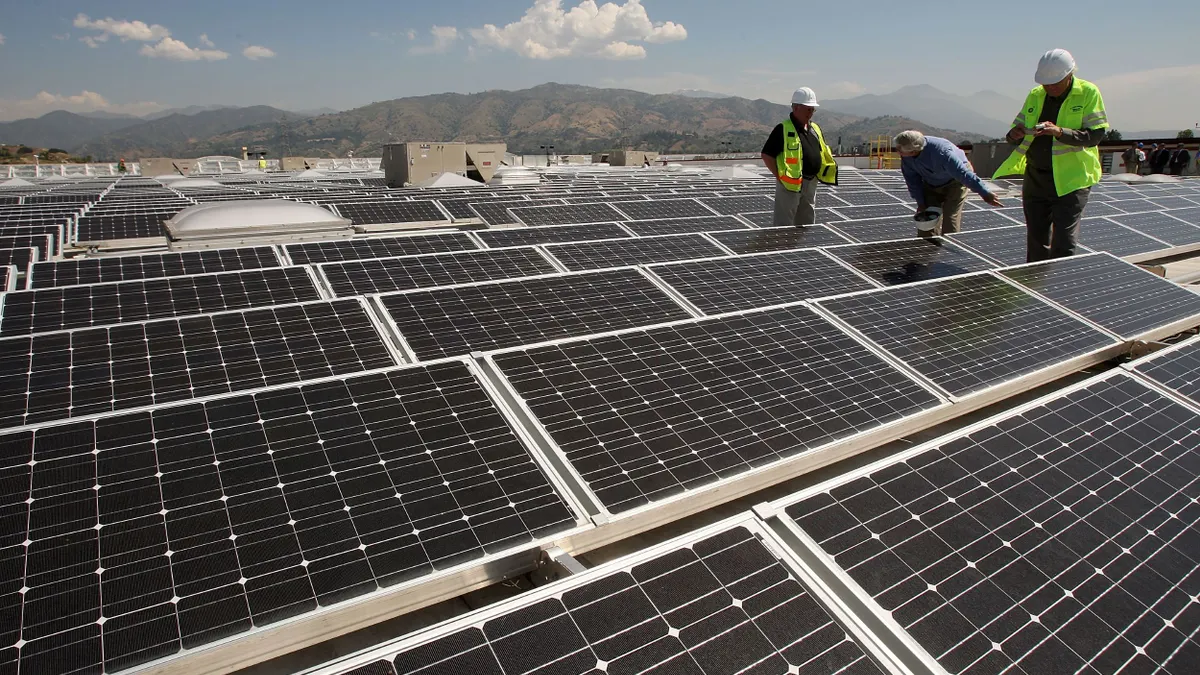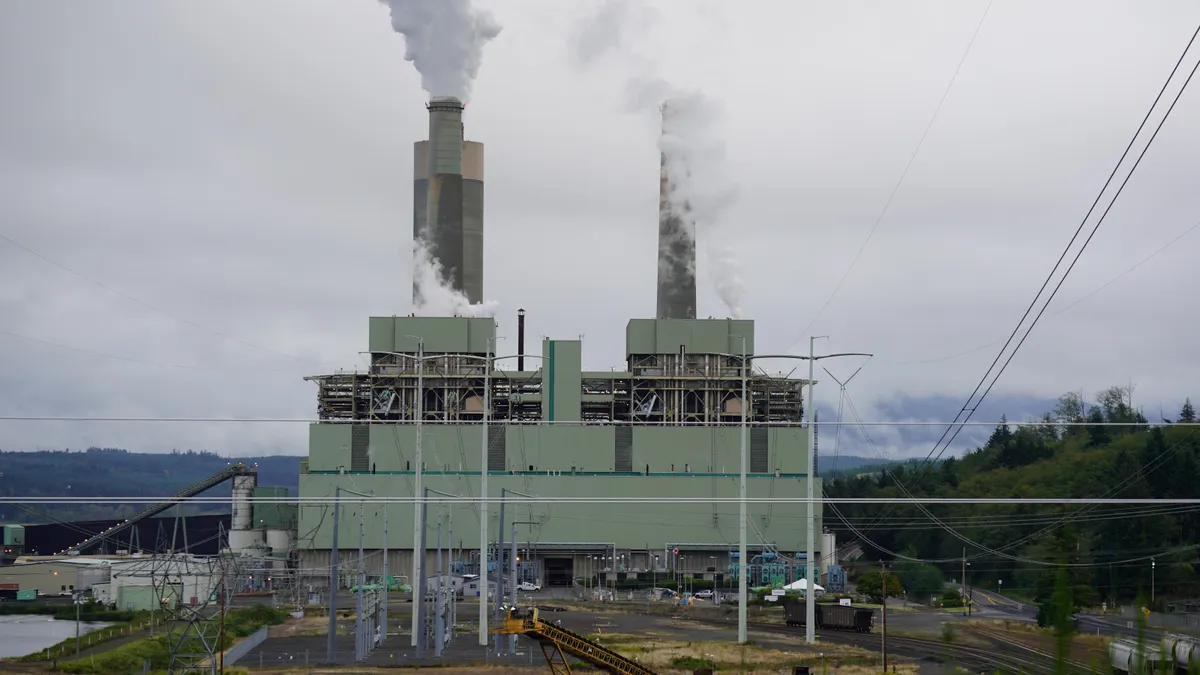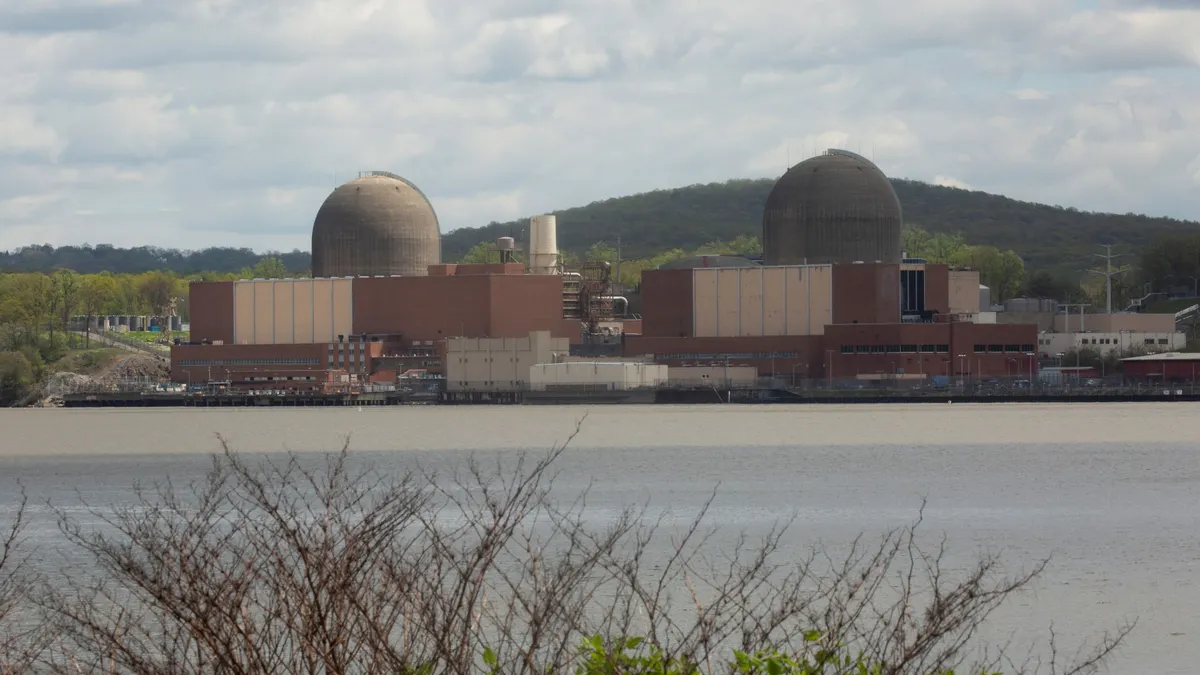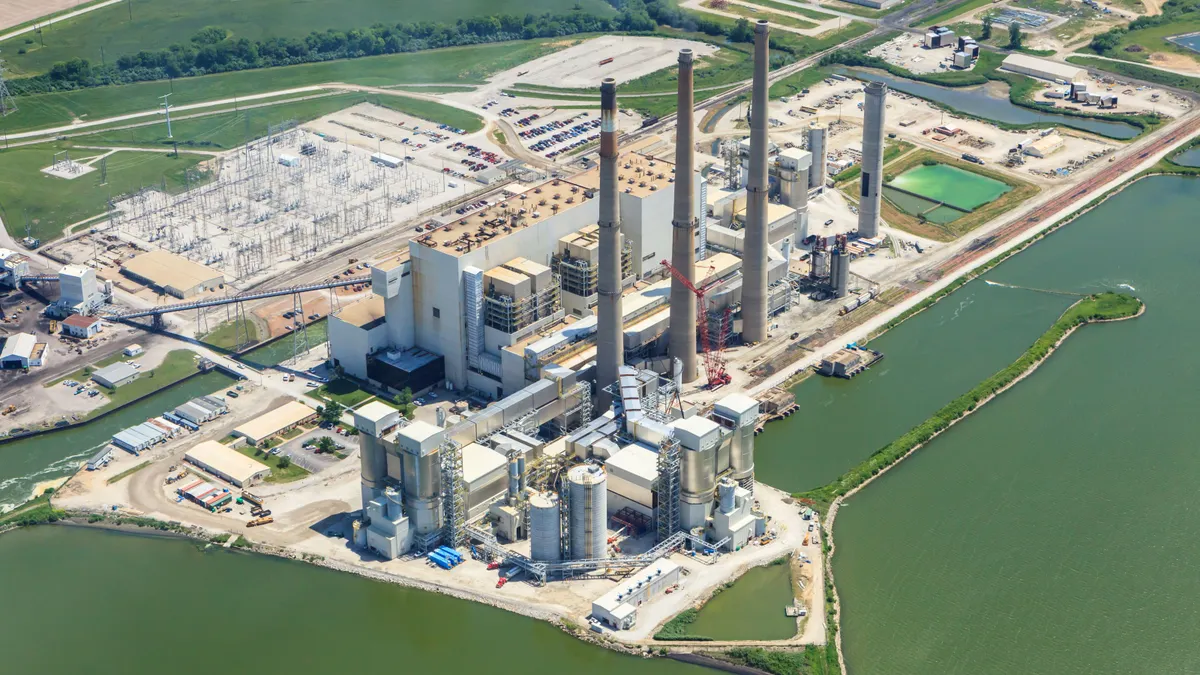Times are tough for the nuclear industry. Power prices are low on sluggish demand growth and a glut of natural gas, which has put financial pressure on nuclear plants, something Exelon knows too well.
Although five nuclear reactors are being built, since October 2012 plans have been announced to retire 4,200 MW, or 4.2%, of the U.S. nuclear fleet.
Dominion Resources couldn't find a buyer for its Kewaunee nuclear power plant in Wisconsin and shut it down because it was unprofitable. Other plants like the Oyster Creek reactor in New Jersey are slated to be retired because their owners don't think it makes sense to invest in plant upgrades.
Things are so tough that the industry earlier this year launched Nuclear Matters, a major public relations campaign with the modest goal of keeping existing plants operating.
Environmentalists have mixed feelings
Environmentalists often have mixed feelings about nuclear power. High-level nuclear waste from nuclear plants takes hundreds of thousands of years to decay and become harmless. And after years of trying, the United States still lacks a national storage facility so nuclear waste is piling up at nuclear plants around the country. Just last week, The Energy Department stopped collecting a fee that raises about $750 million a year for a national waste facility because the Obama administration has halted efforts to build the Yucca Mountain facility in Nevada.
However, despite all their challenges, nuclear power plants, which produce about 20% of the power in the United States, have one major advantage over coal-fired and natural gas-fired generation: they produce zero greenhouse gas emissions.
Last month, the Nuclear Matters campaign picked up the backing of former Environmental Protection Agency Administrator Carol Browner, partly because nuclear plants don't have any carbon emissions.
“I used to be anti-nuclear,” Browner said May 5. “But, several years ago I had to reevaluate my thinking because if you agree with the world’s leading climate scientists that global warming is real and must be addressed immediately then you cannot simply oppose clean, low-carbon energy sources.”
Report: Nuclear shutdowns would hurt GHG reduction efforts
This issue was highlighted by "Climate Solutions: the Role of Nuclear Power," a report released in late April by the Center for Climate and Energy Solutions, formerly the Pew Center on Global Climate Change.
“Each nuclear retirement makes it more difficult to achieve the United States’ international pledge to reduce emissions 17% below 2005 levels by 2020, and to achieve the even greater reductions necessary over the longer term,” the report said.
Nuclear generators get no help from current power market designs, according to the report. "Most power and capacity markets neither explicitly value zero-emission electricity sources, nor adequately value baseload generation sources," the report said.
A carbon tax would help keep nuclear plants operating, according to the report. "Market-based polices that establish a price on carbon, such as emissions trading, a clean energy standard, or a carbon tax, can harness the power of market forces to reduce emissions at the lowest costs," it stated.
Although it is unlikely the United States will adopt a market-based climate solution in the near term, EPA's pending greenhouse gas standard for existing power plants — set to be released in early June — could boost nuclear generation, the report said.
FERC joins debate
Nuclear generators have at least one champion at the Federal Energy Regulatory Commission. "I have growing concern about the short-term life of some of our nuclear facilities and how we're going to keep them around," John Norris, FERC commissioner, said at a joint meeting in Tempe, Ariz., of the Committee on Regional Electric Power Cooperation and the State-Provincial Steering Committee, which represent Western states and provinces on electricity issues. It will become increasingly difficult to cut greenhouse gas emissions if more nuclear plants retire, he said at the meeting.
On May 28, FERC, the Nuclear Regulatory Commission and the National Electricity Reliability Corp. will hold a joint meeting outside Washington, DC. One of the topics on the agenda: Market dynamics that may affect the financial viability of nuclear power plants.
While FERC and NERC may be concerned about reliability issues if more nuclear plants retire (along with a wave of coal plants that are expected to retire in the next two years), any market changes that keep them operating longer will at least keep carbon emissions at current levels. And that could be what keeps nuclear power plants from retirement.





















